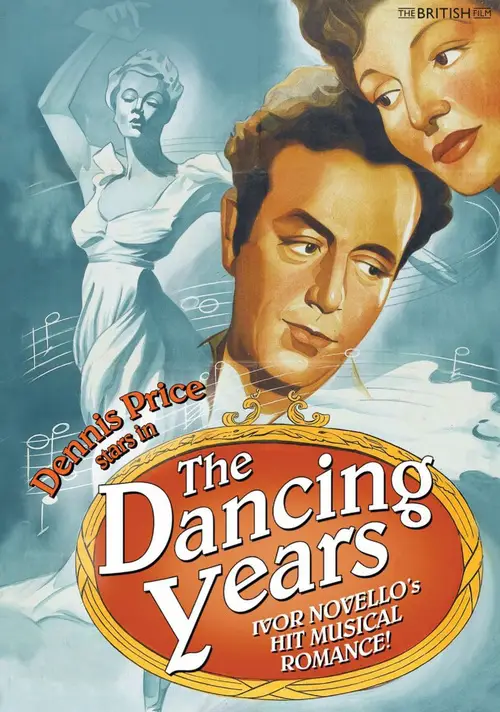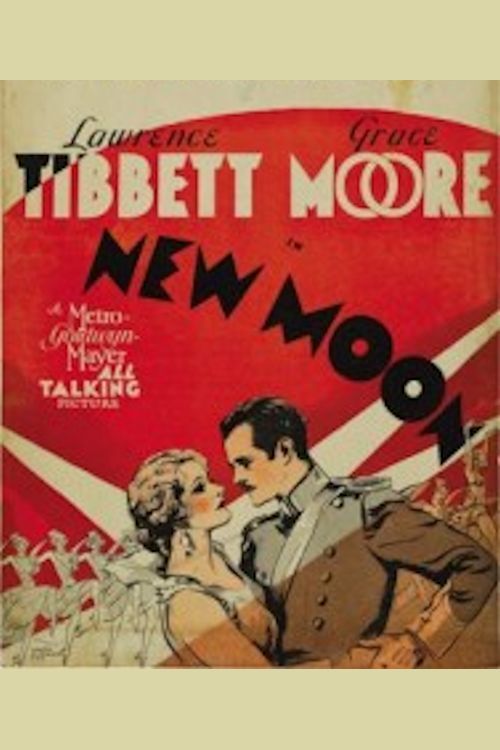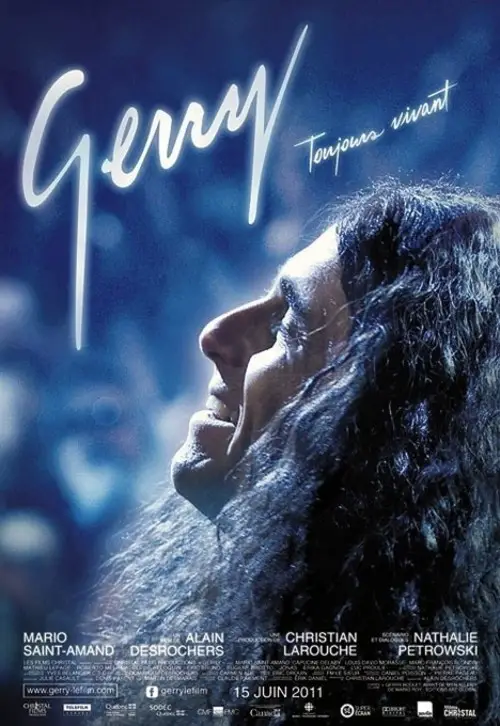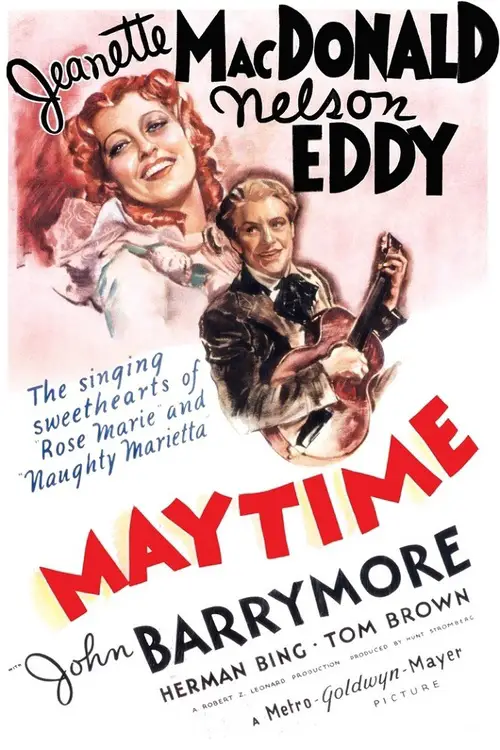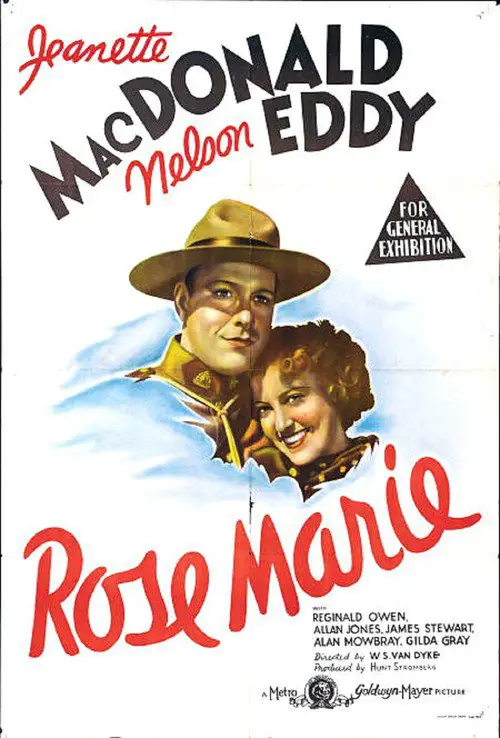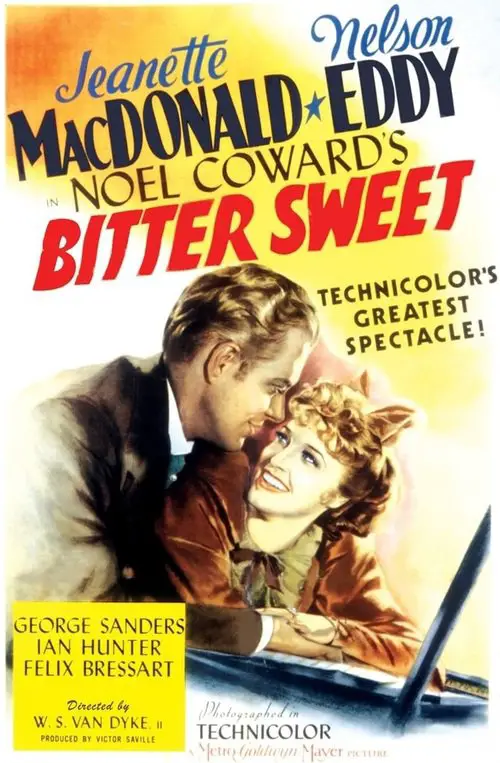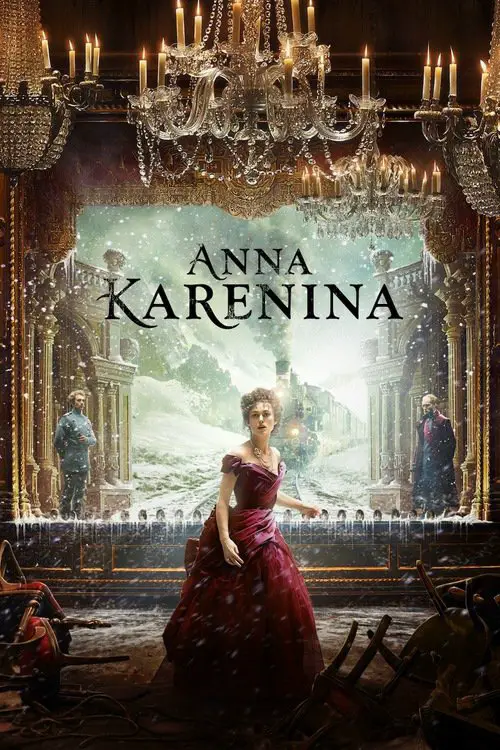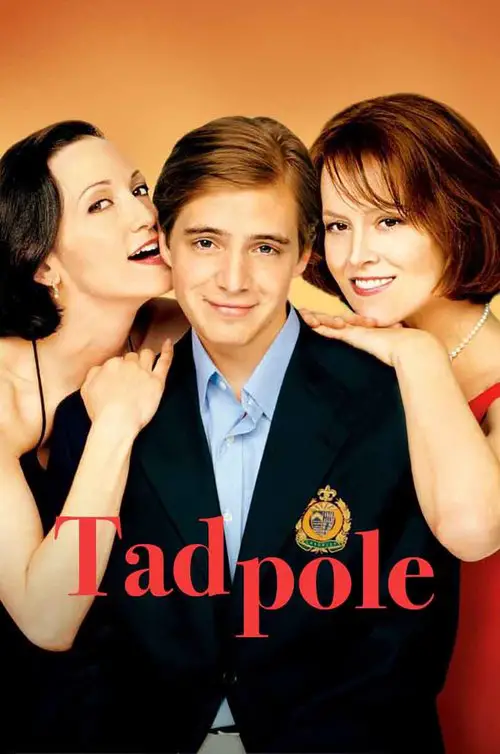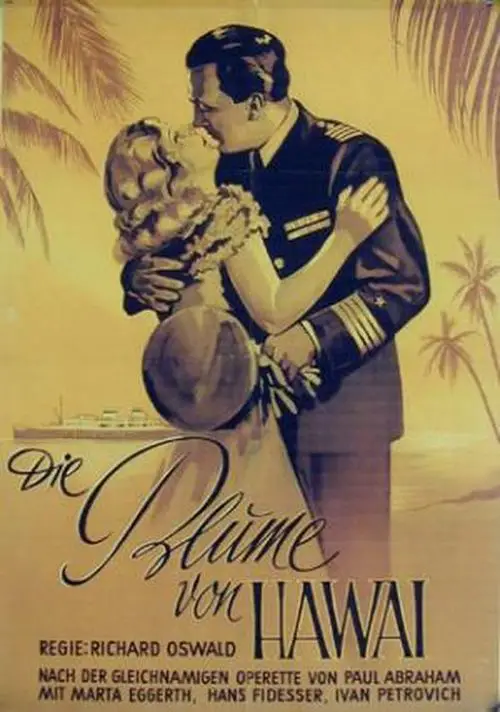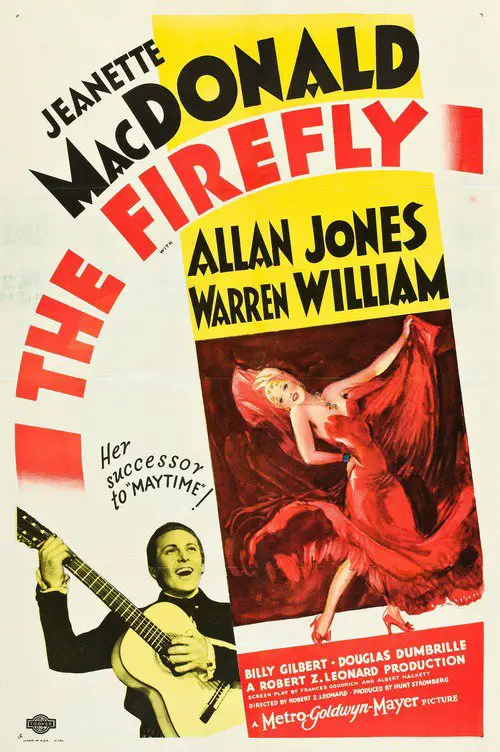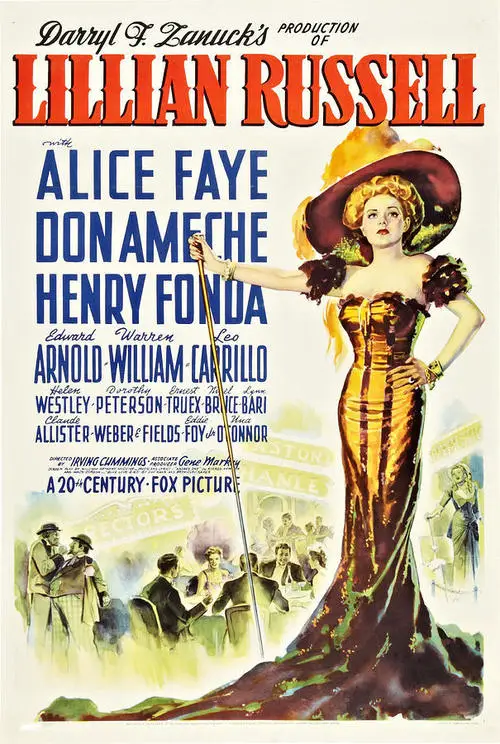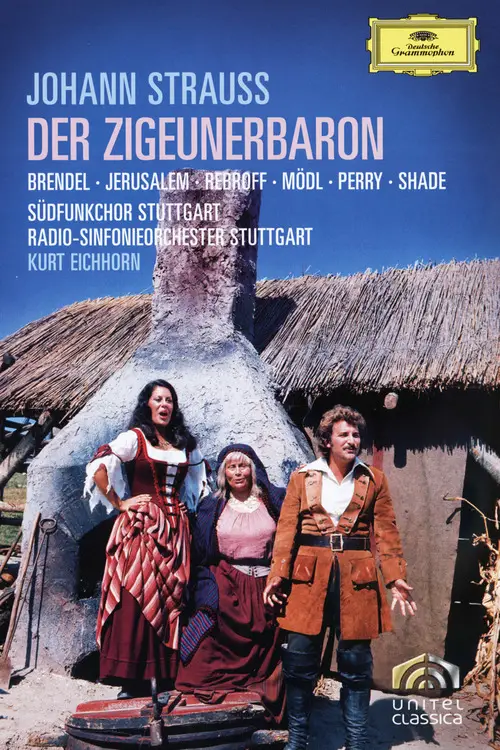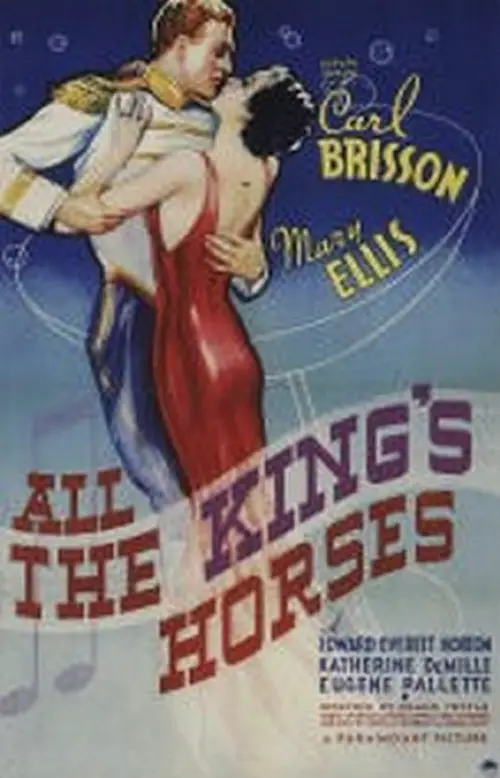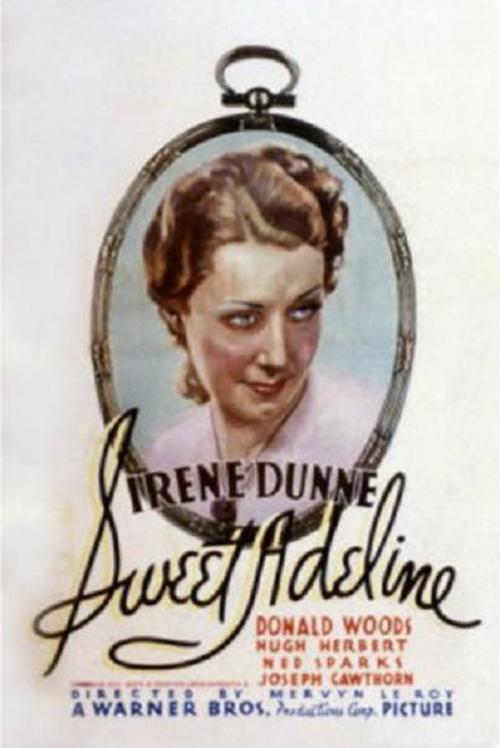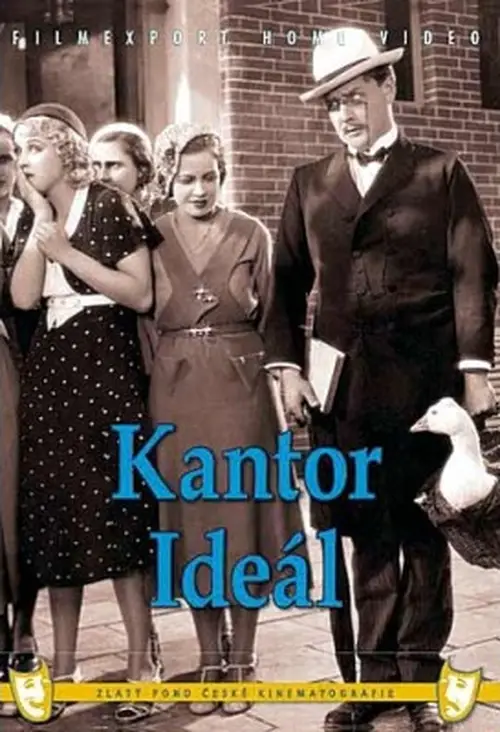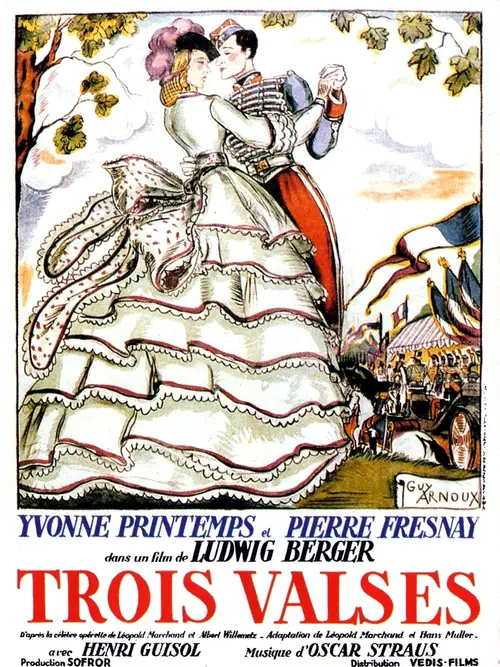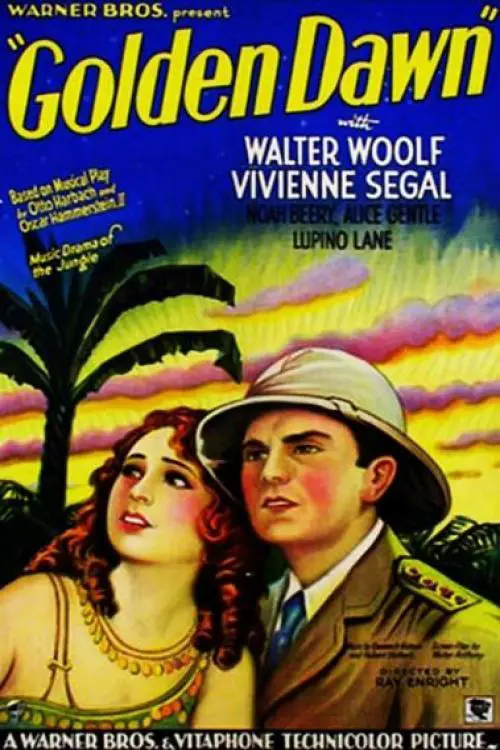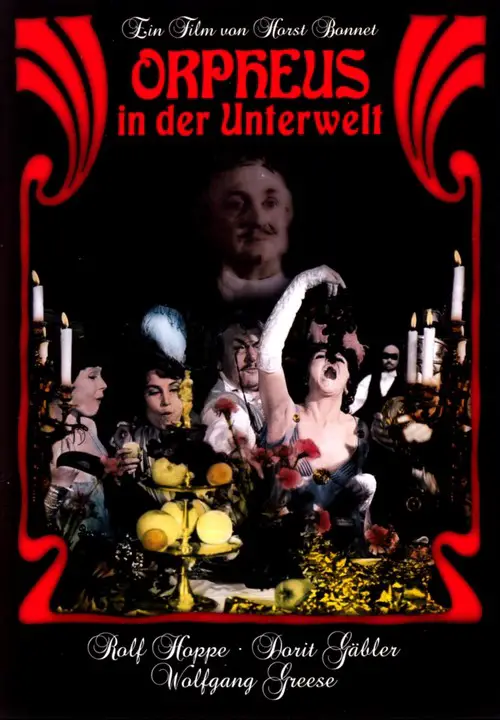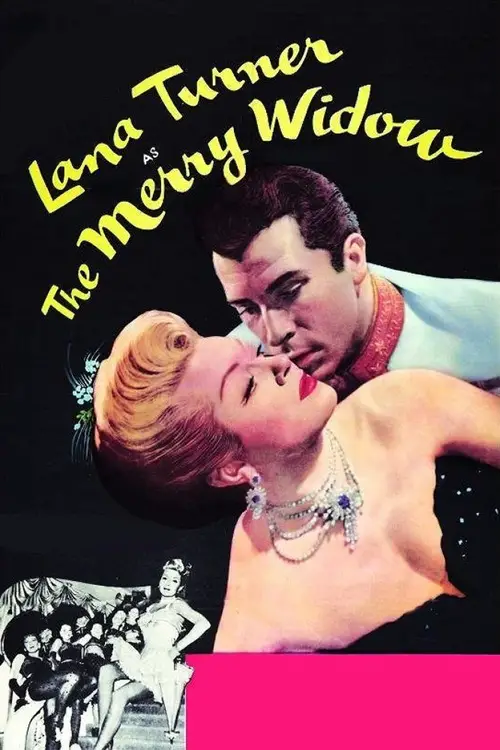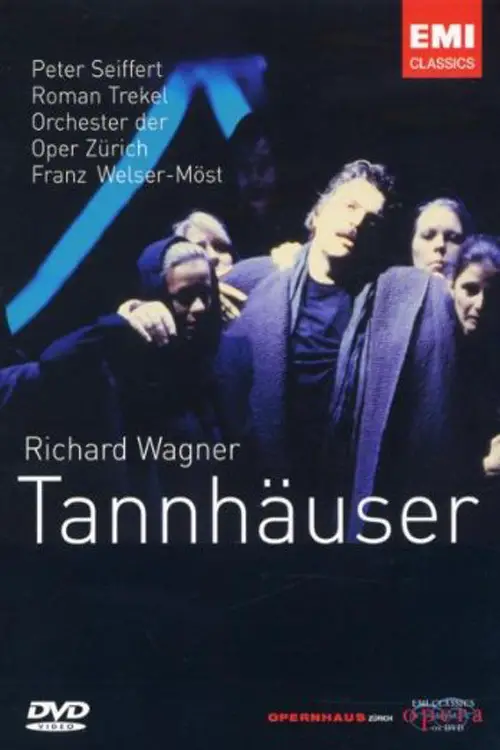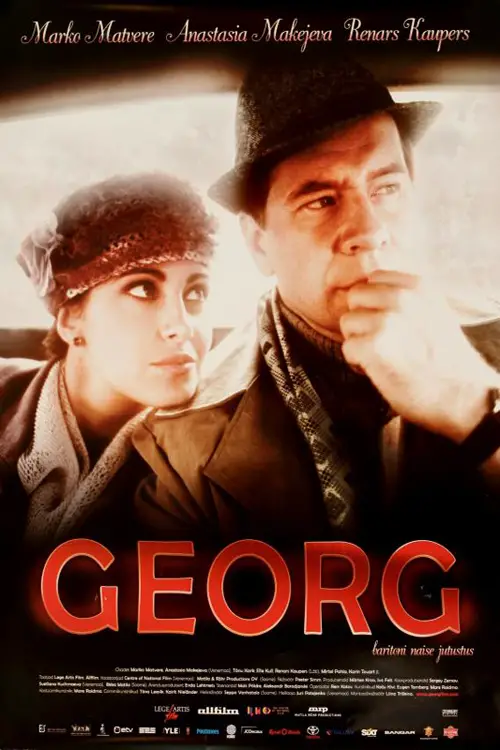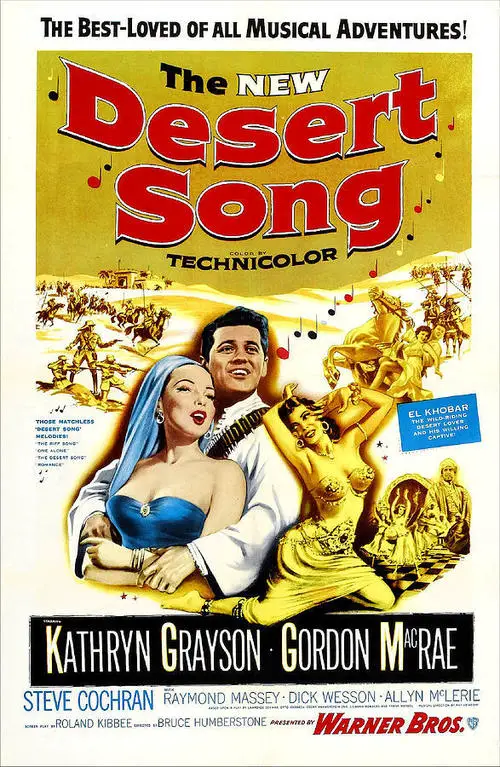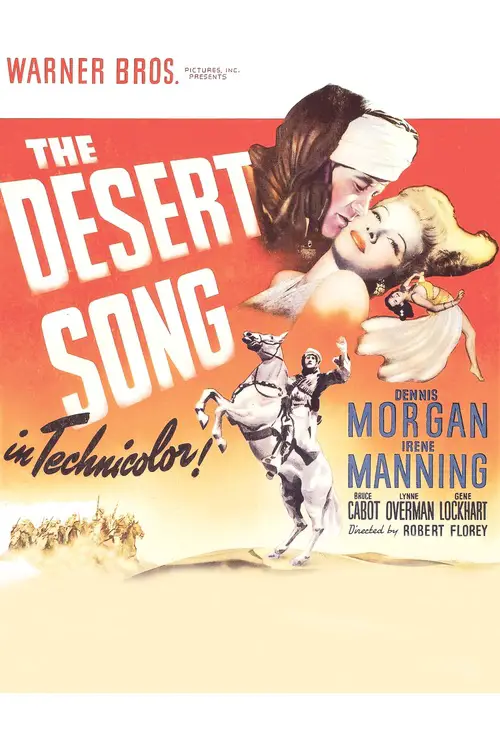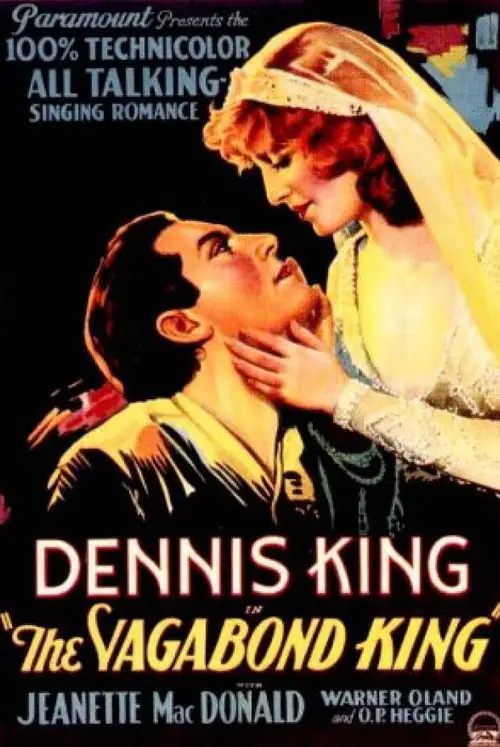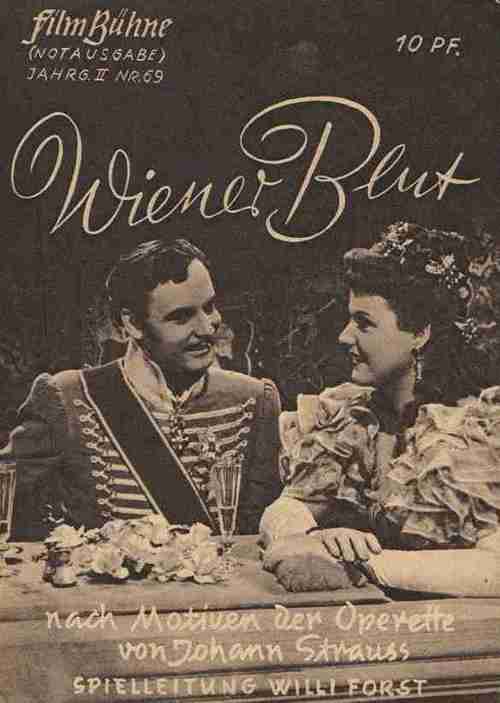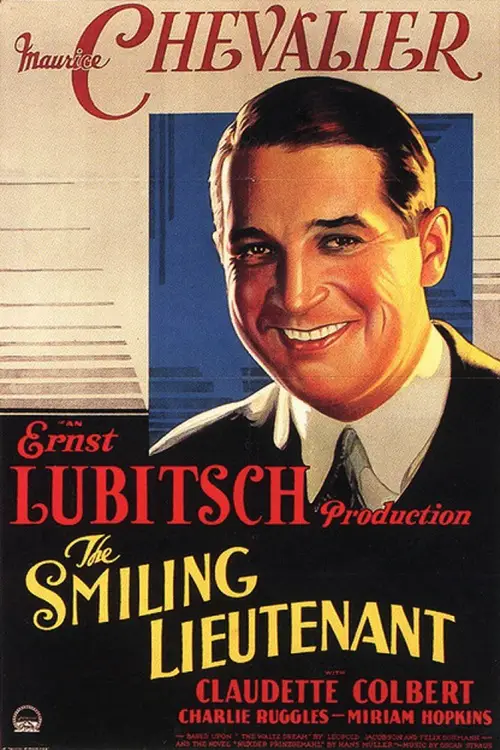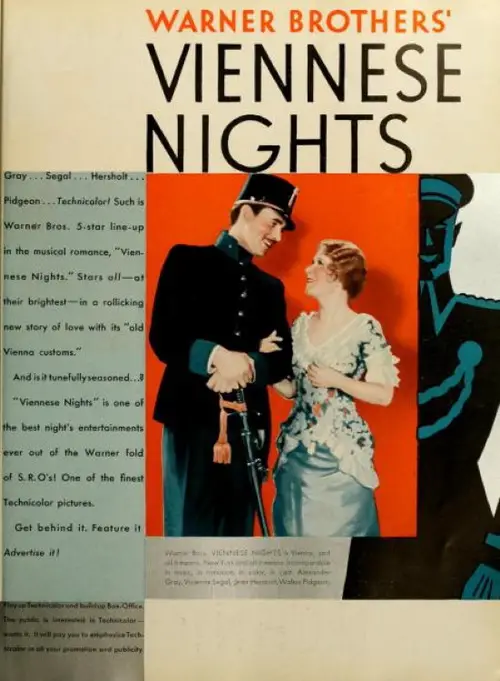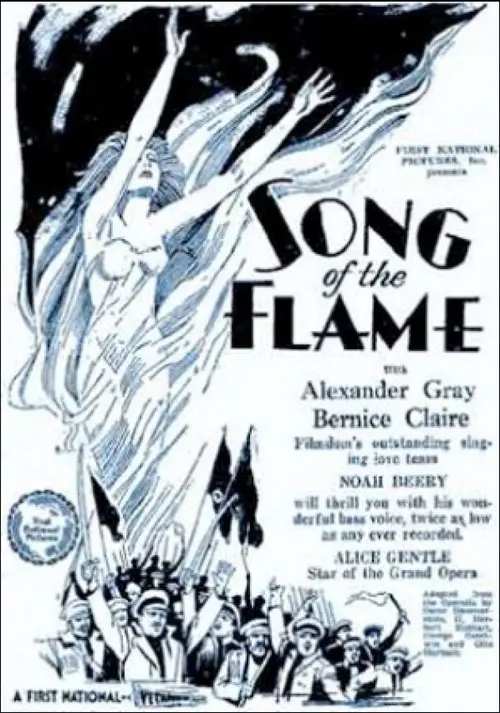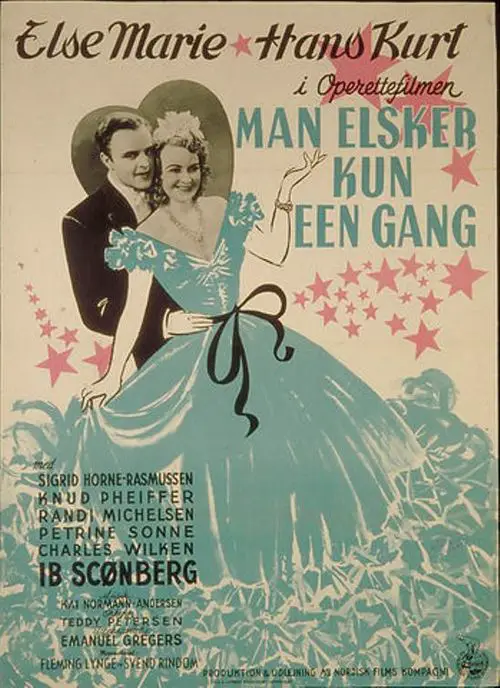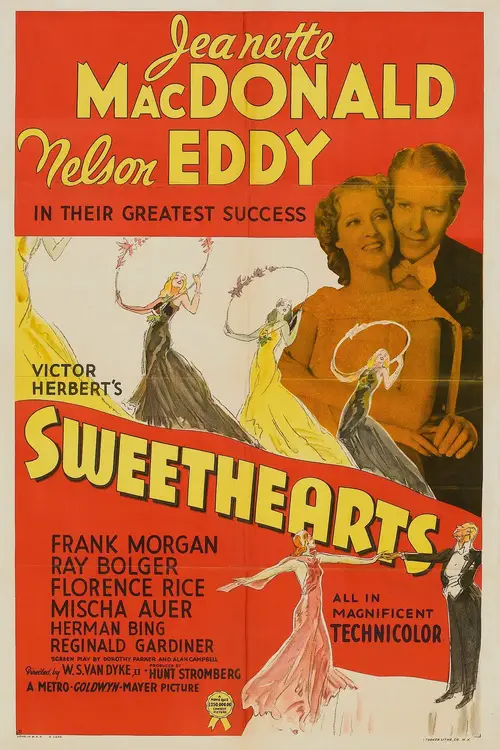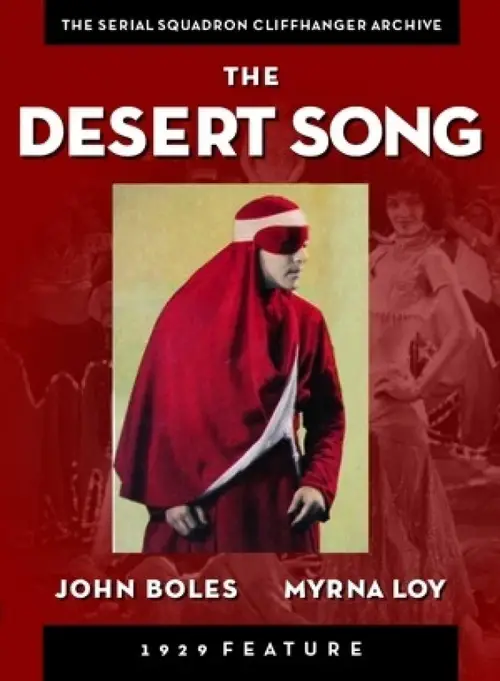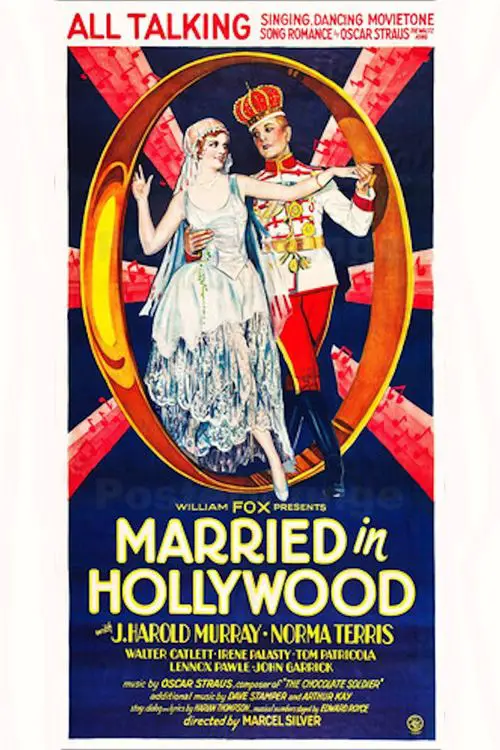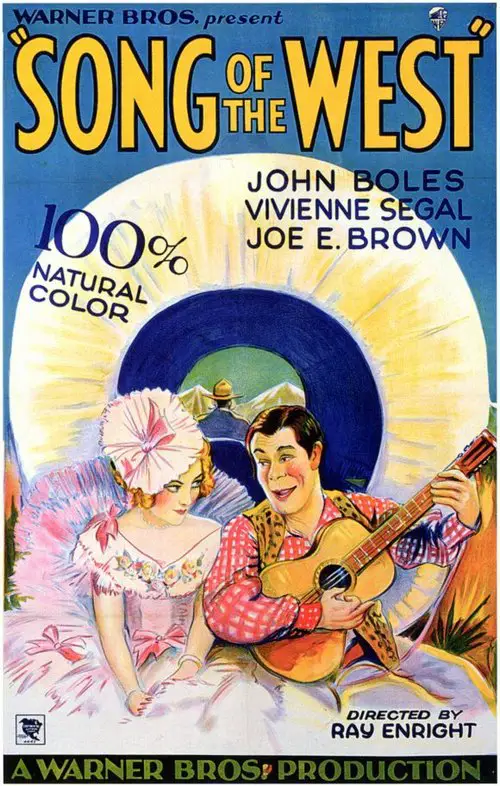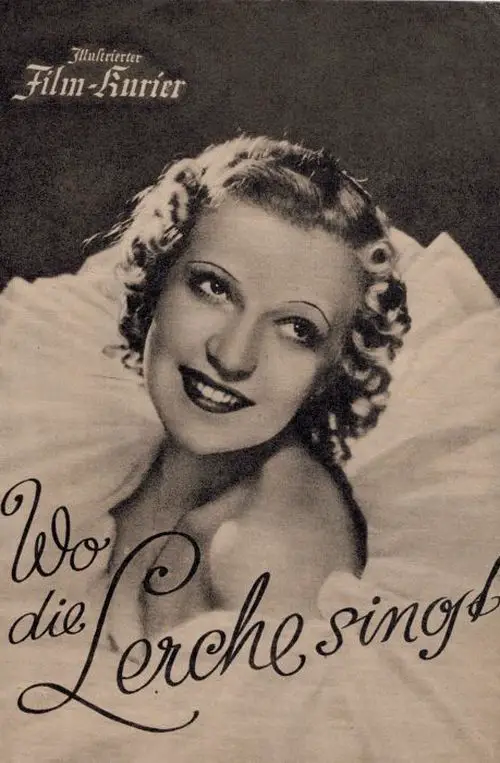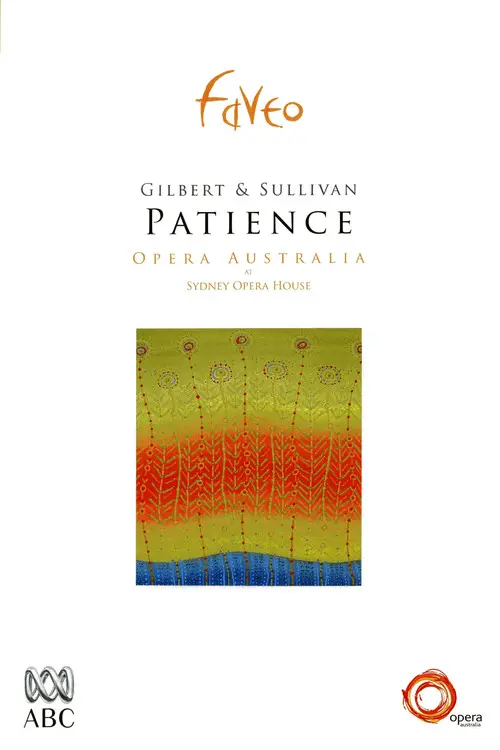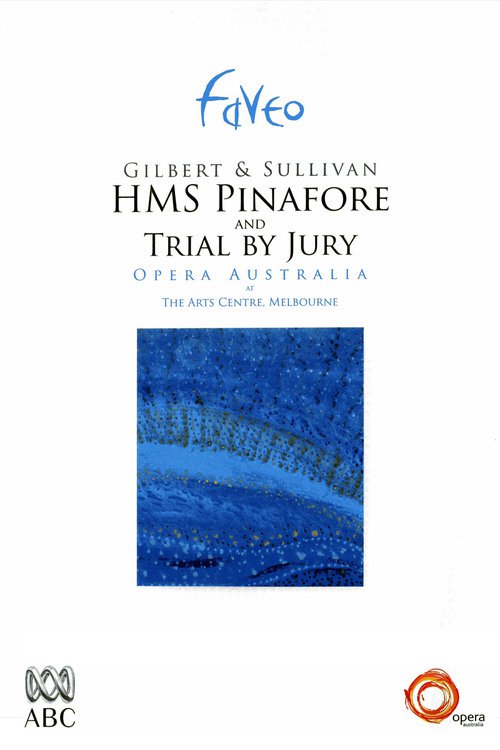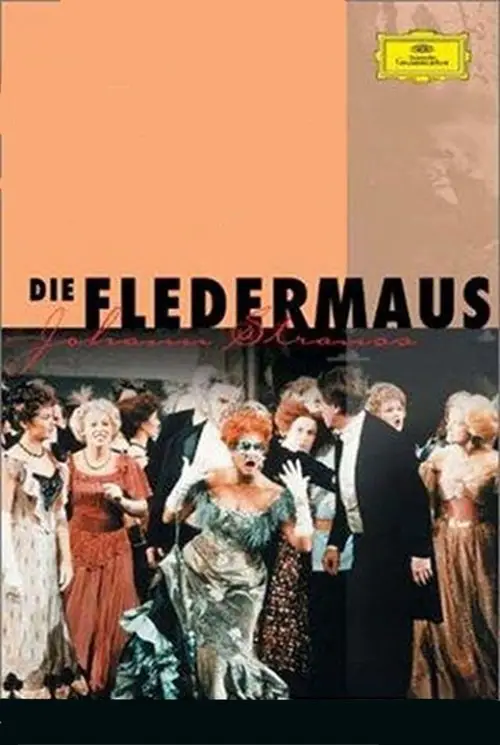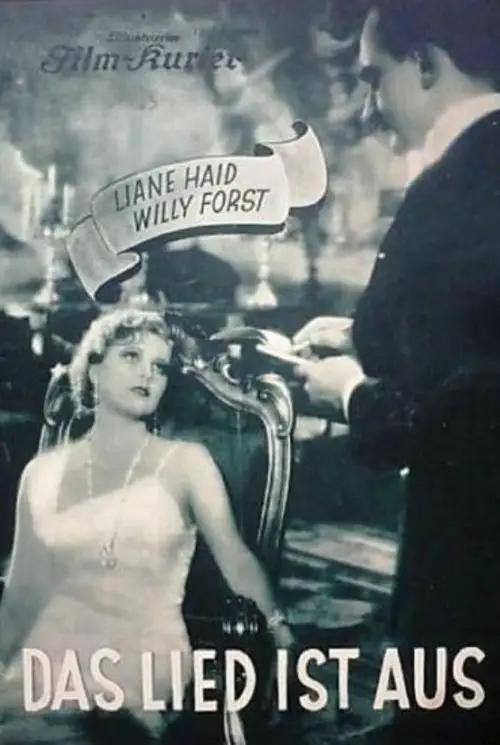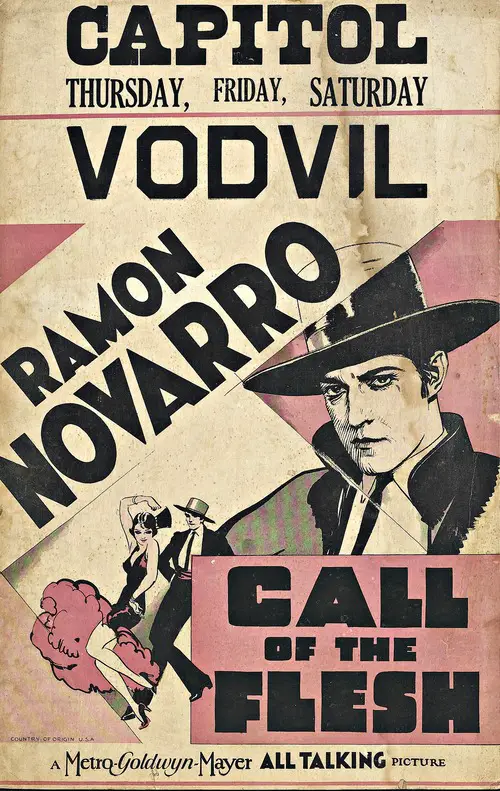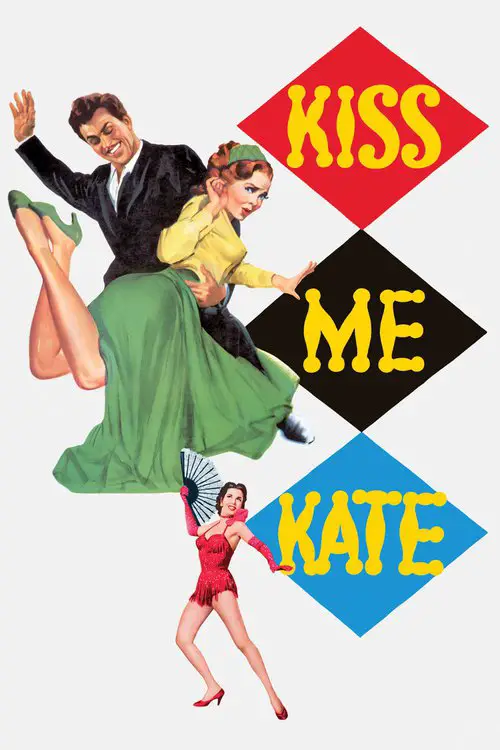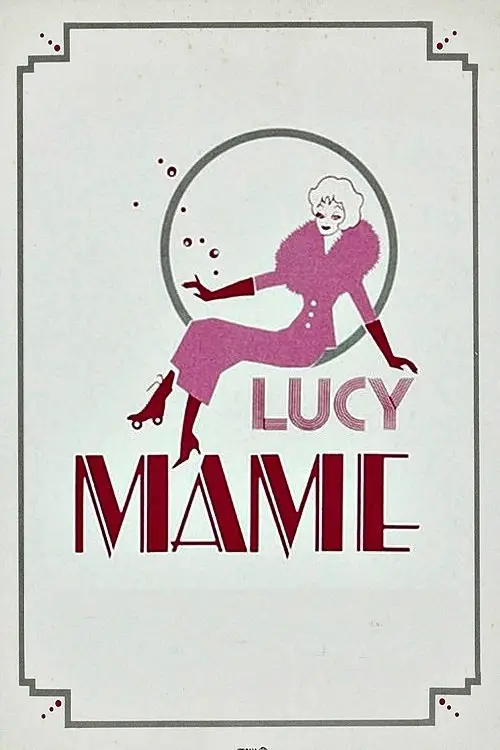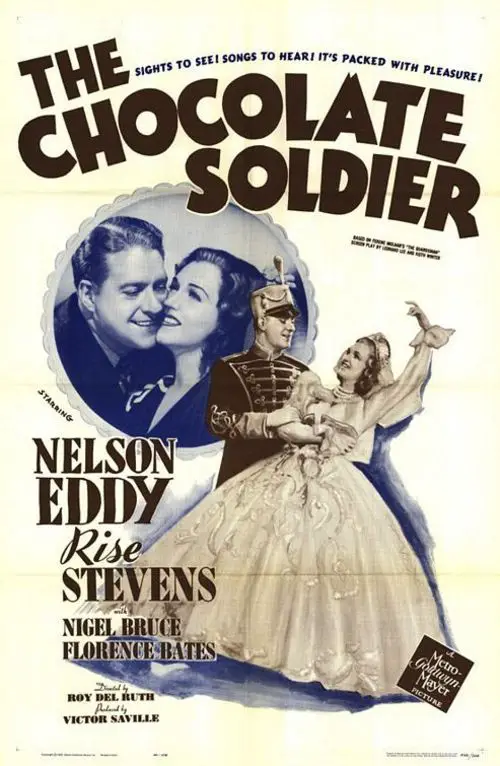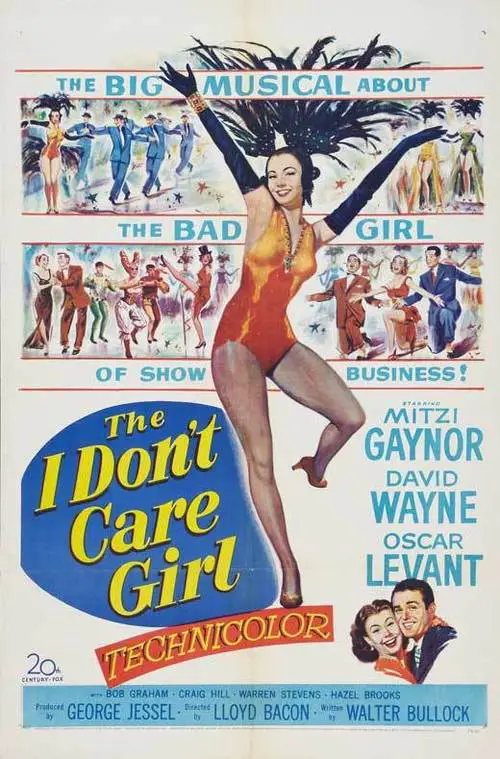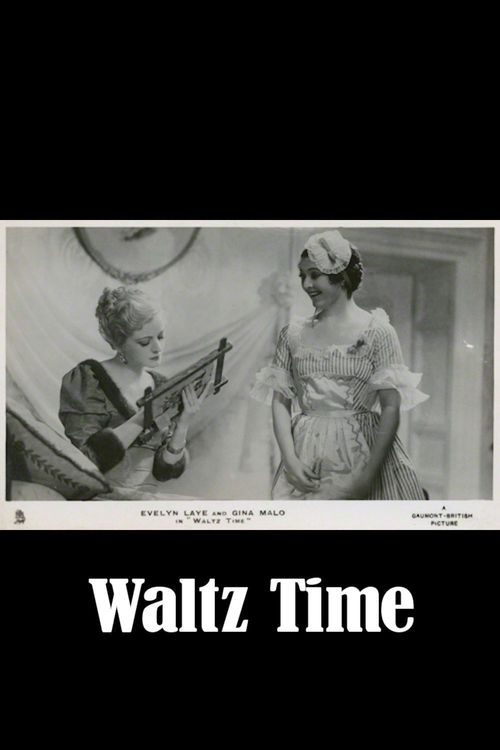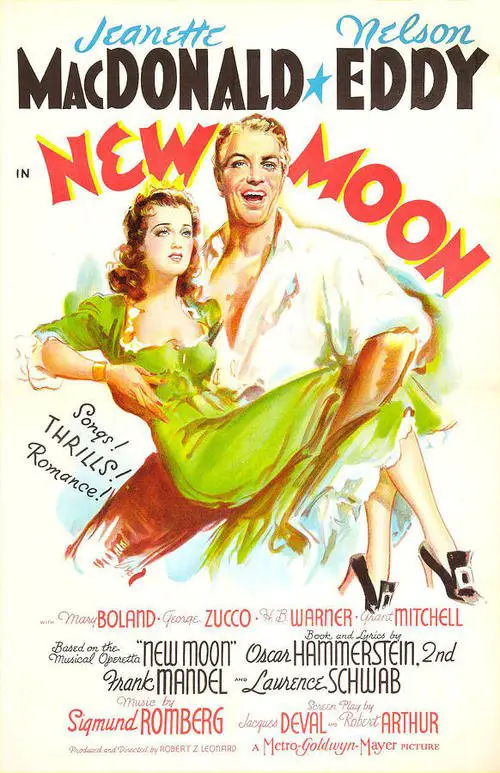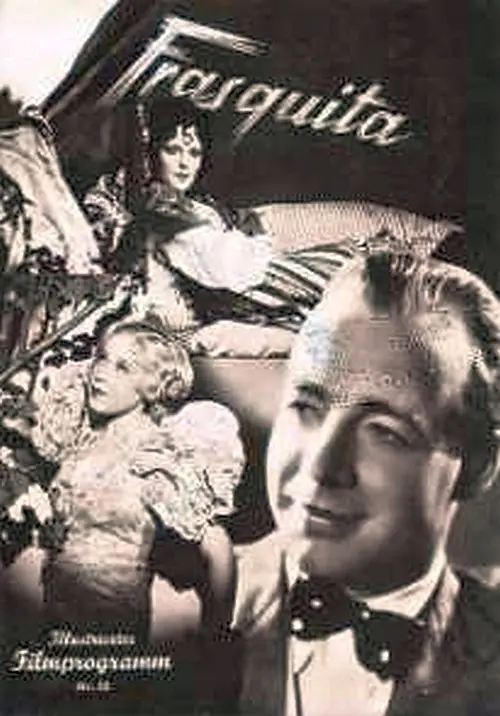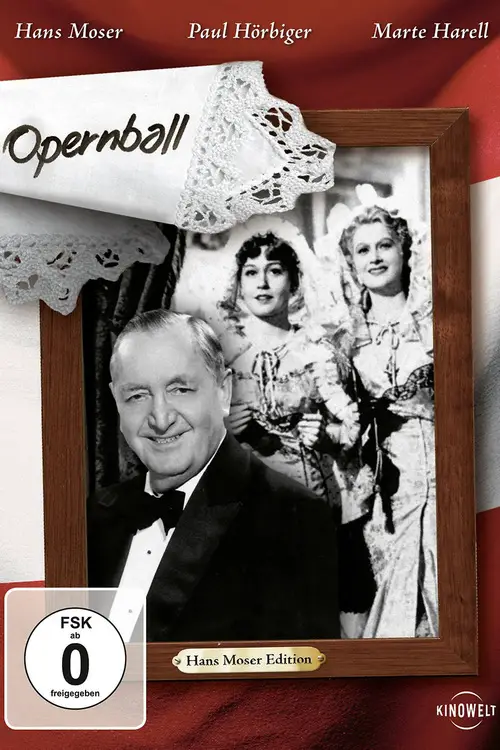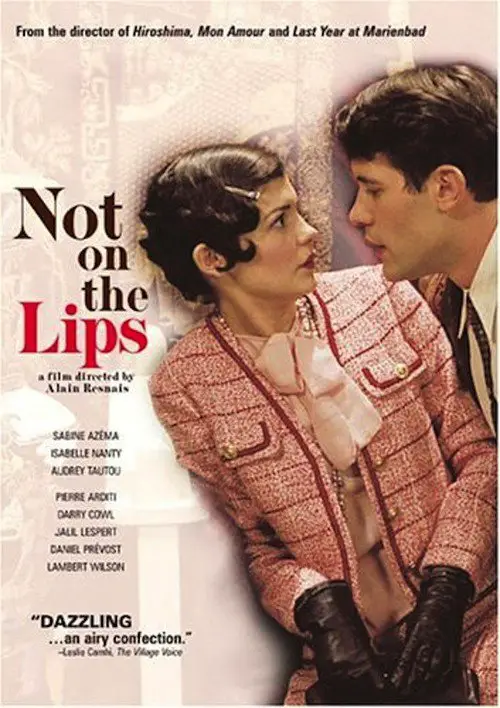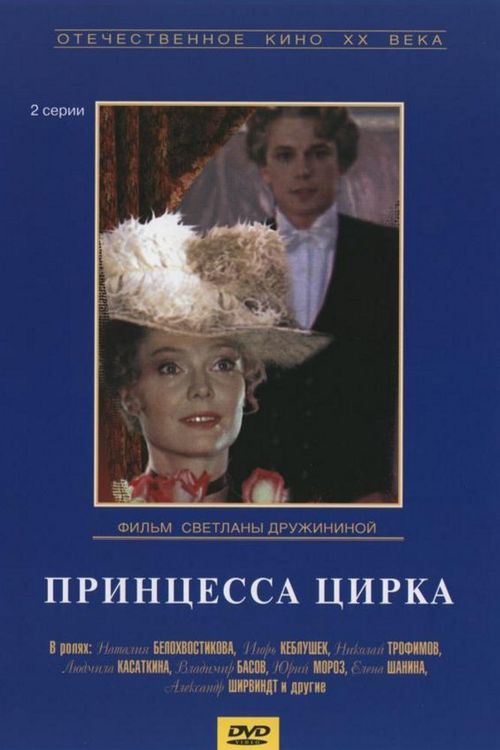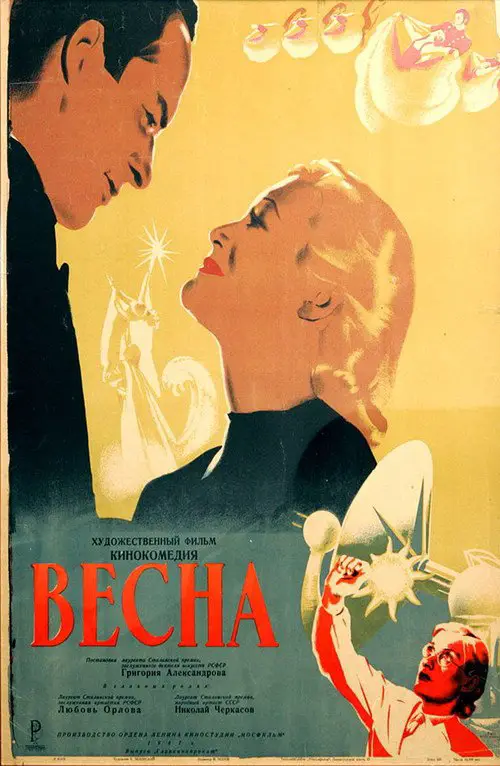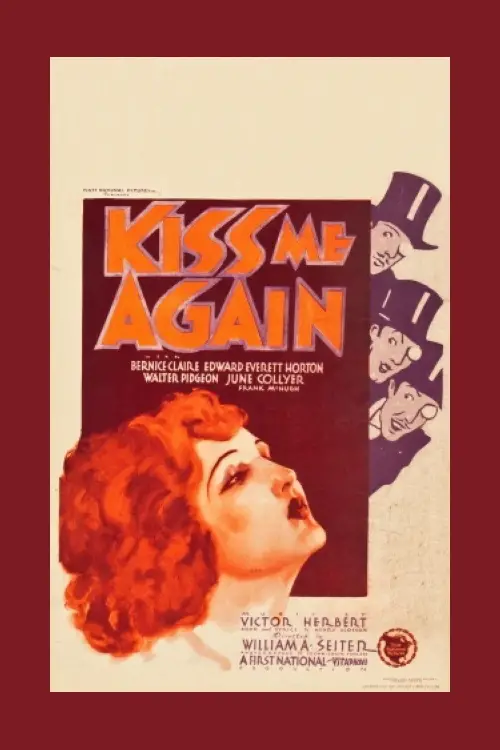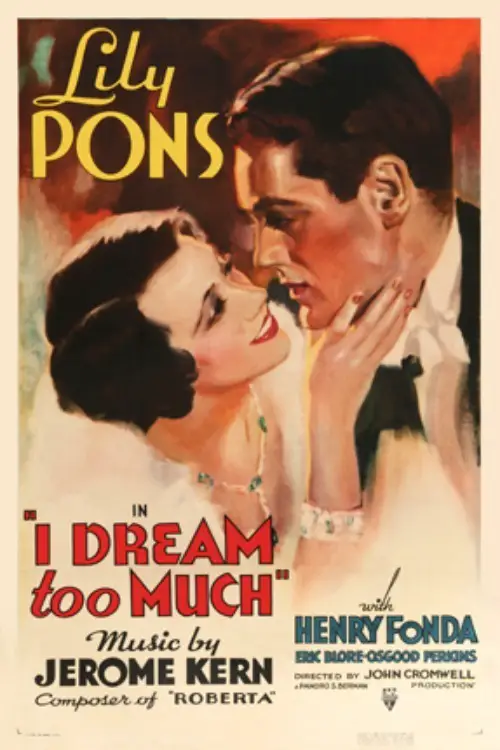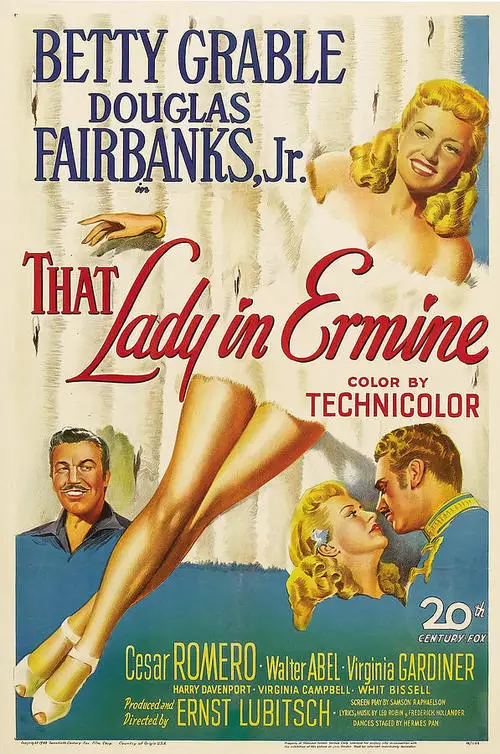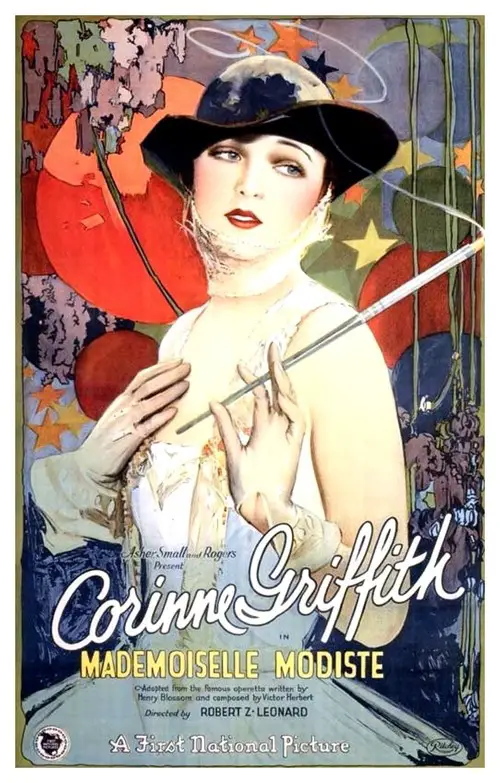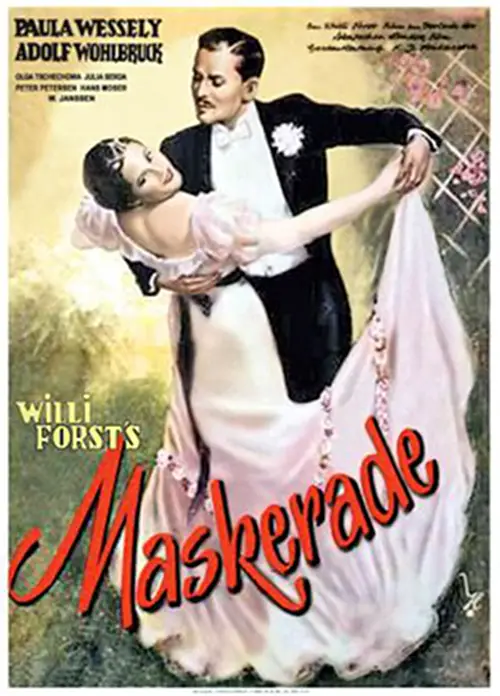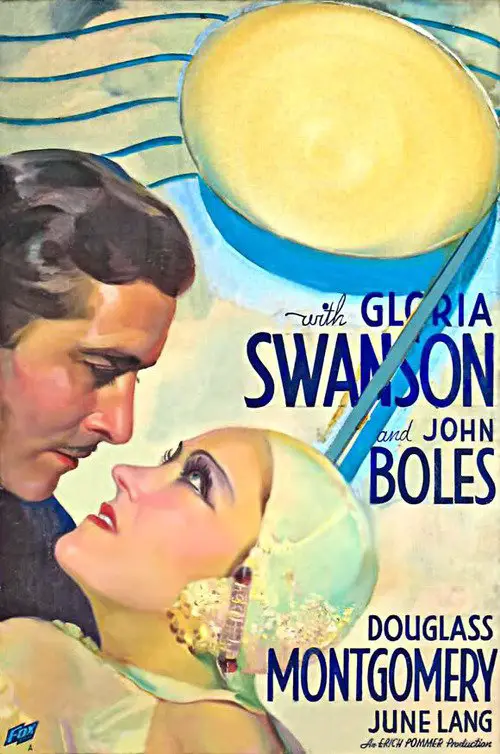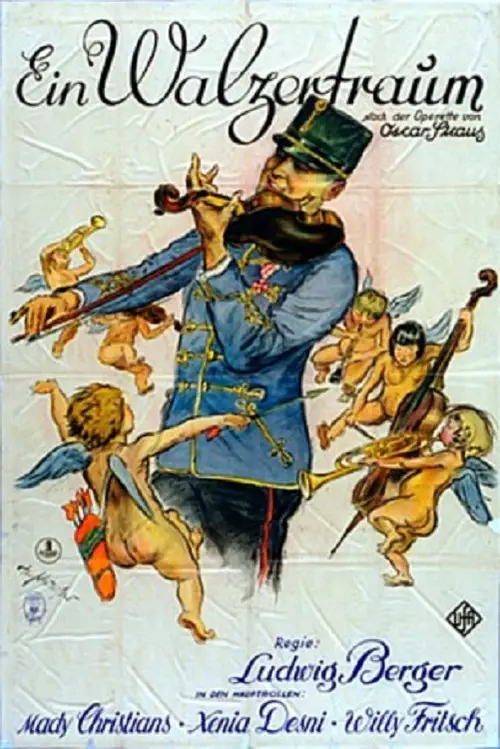Natalka Poltavka (1936)
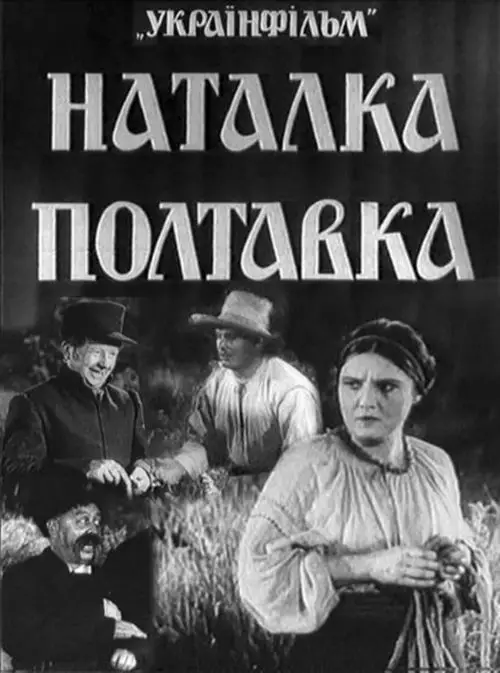
Similar movies
The episodic story of a composer of operettas, Rudi Kleiber, in in old Viennese days, and the two women in his life; Maria Zeitler, his sweetheart, later mistress, lost love, an operetta star, and his first patron, and the mother of a son he did not know he had; and of Greta, his first love and companion in later years
New Moon is the name of the ship crossing the Caspian Sea. A young Lt. Petroff meets the Princess Tanya and they have a ship board romance. Upon arriving at the port of Krasnov, Petroff learns that Tanya is engaged to the old Governor Brusiloff. Petroff, disillusioned, crashes the ball to talk with Tanya. Found by Brusiloff, they invent a story about her lost bracelet. To reward him, and remove him, Brusiloff sends Petroff to the remote, and deadly, Fort Darvaz. Soon, the big battle against overwhelming odds will begin.
In order to avoid an arranged marriage with a man she doesn't love, Sarah Millick runs off to Vienna with her music teacher, Carl Linden, whom she does love. They are married. In Vienna, they struggle to make a living by making music. Carl writes an operetta and tries to get it produced. They are helped along by Viennese Baron, but his intentions are not honorable. He kills Carl in a sword fight. A big producer does put on the operetta, with Sari in the lead -- but without her husband, it is a bittersweet victory.
Budapest in the thirties. The restaurant owner Laszlo hires the pianist András to play in his restaurant. Both men fall in love with the beautiful waitress Ilona who inspires András to his only composition. His song of Gloomy Sunday is, at first, loved and then feared, for its melancholic melody triggers off a chain of suicides. The fragile balance of the erotic ménage à trois is sent off kilter when the German Hans goes and falls in love with Ilona as well.
Beautiful, sophisticated women are all over Oscar Grubman. He is sensitive and compassionate, speaks French fluently, is passionate about Voltaire, and thinks the feature that tells the most about a woman is her hands. On the train home from Chauncey Academy for the Thanksgiving weekend, Oscar confides in his best friend that he has plans for this vacation--he will win the heart of his true love. But there is one major problem--Oscar's true love is his stepmother Eve. Oscar is certain that he could be a better mate to Eve than his work-obsessed father. He fails to win Eve's heart and is consequently dejected. Oscar's path to his true love is further crossed by Diane, Eve's best friend who, one night while wearing Eve's borrowed perfumed scarf, offers him temporary comfort in an unconventional tryst. For Diane, Oscar fills a void in her life. For Oscar, Diane is somewhat of a distraction, as his continued pursuit of Eve leads to an unexpected resolution.
Nina Maria Azara is the beautiful and alluring singing spy for Spain during the Napoleonic Wars. Her mission is to seduce French Officers, in order for them to reveal Napolean's intentions toward Spain. She is sent to Bayonne, France to gather military secrets. Prior to this, she meets, Don Diego while performing at a club. Unknown to her, Don Diego is actually Captain Andre, who is sent to Spain to spy on her. While in France, Nina discovers Diego's true identity, only after she has fallen in love with him. Nina Maria outwits her potential captors and returns to Spain, and goes into hiding. Napoleon's troops invade Spain, resulting in Nina's capture. In a strange twist of fate, Nina and Captain Andre are reunited, but, the 2 nations are now at war... Written by Kelly
In the Temesvar Province, a landowner returned from exile marries a gypsy girl who is revealed to be the daughter of a Turkish Pasha and the rightful owner of a hidden treasure. Next to "Die Fledermaus", DER ZIGEUNERBARON is Johann Straussâs most popular operetta. The libretto gave Strauss the chance to revel in such contrasting musical forms as the Csárdás and the Viennese waltz. The style of the lied forms and ensembles is so original and finely balanced that the "Gypsy Baron" can truly be called a comic opera. Among the leading names of the stellar cast in this exuberant 1975 film of the operetta are Wolfgang Brendel, Ivan Rebroff, Janet Perry, Ellen Shade, Martha Mödl and, in the role that launched his career, Siegfried Jerusalem as Sándor Barinkay.
Paramount Pictures decided in 1935 to create a new romantic team, thus cast singing stars Carl Brisson and Mary Ellis in the frothy operetta All the King's Horses. Brisson does the "Prisoner of Zenda" bit as a movie star who is forced by circumstances to impersonate a look-alike king. Ms. Ellis is the highborn lady who seems to be fooled by the ruse. The plots roll merrily onward while various and sundry musical-comedy character actors (including Edward Everett Horton and Eugene Pallette) fuss and fume in the background. Danish singer Carl Brisson had created a minor sensation by introducing "Cocktails for Two" in Paramount's Murder at the Vanities (34), but the studio's attempts to turn him into a Scandinavian Maurice Chevalier were unsuccessful.
"Les Trois Valses" traces the love story of two people over three eras. In the first waltz (music based on Johann Strauss I), Yvonne is a sensitive Parisian ballet dancer, whose romance with a dashing officer is brought to an abrupt end by his family. She goes off to Vienna to become a big star. In the second waltz, her daughter, an even bigger star, but now of Paris music halls, has a brief flirtation with the rakish man-about-town who is the son of suitor number one. She throws him over pretty quickly for a chance to shine at a Gala performance. Finally, in the third waltz, the two get together, when she is a movie star, and he is posing as an insurance salesman.
Golden Dawn (1930) is a musical operetta released by Warner Brothers, photographed entirely in Technicolor, and starring Walter Woolf King and Noah Beery. The film is based on the semi-hit stage musical of the same name by Oscar Hammerstein II and Otto Harbach. Beery's extraordinarily deep bass voice registers particularly well in the songs.
Marshovia, a small European kingdom, is on the brink of bankruptcy but the country may be saved if the wealthy American Crystal Radek, widow of a Marshovian, can be convinced to part with her money and marry the king's nephew count Danilo. Arriving to Marshovia on a visit, Crystal Radek change places with her secretary Kitty. Following them to Paris, Danilo has a hard time wooing the widow after meeting an attractive young woman at a nightclub, the same Crystal Radek who presents herself as Fifi the chorus girl. Plot by Mattias Thuresson.
Music & Musicals, Opera & Operetta, Classical Music - Witness the Zurich Opera's stunning production of Richard Wagner's masterpiece "Tannhauser," conducted by Franz Welser-Most and featuring Peter Sieffert (Tannhauser), Solveig Kringelborn (Elisabeth) and Thomas Hampson (von Eschenbach). Initially produced in Dresden in 1845, "Tannhauser" instilled a sense of wonder in a few of Strauss's ardent friends and admirers, among them Robert Schumann and Franz Liszt. Opera buffs will love it.
Shiek Yousseff, poses as a friend of the French while secretly plotting to overthrow them. Apposing Yousseff are the Riffs, whose secret leader, The Red Shadow, is Paul Bonnard, a professor who is studying the desert, and whose attacks on the supply trains intended for Yousseff keep the Riff villages in food. Foreign Legion General Birabeau arrives to conduct an investigation, accompanied by his daughter, Margot. Birabeau hires Bonnard to tutor her, and she is attracted to a Legionaire captain, Claud Fontaine. While the general, Bonnard and Fontaine pay a visit to Yousseff, an American newspaper man, Benji Kidd, discovers a secret way in and out of Yousseff's palace, with the aid of Azuri, a dancing girl in love with Bonnard. The latter is forced to resume his role as the Riffs leader, and kidnap Margot until he can convince her of Yousseff's treachery. But Yousseff's men attack the Riff camp and take Margot prisoner.
The story takes place in medieval France. Poet-rogue Francois Villon, sentenced to hang by King Louis XI for writing derogatory verses about him, is offered a temporary reprieve. His hanging will be postponed for 24 hours, and in that time he must defeat the invading Burgundians and win the love of the beautiful Katherine.
This was a screen version of the 1925 operetta by Oscar Hammerstein II, Otto Harbach, Herbert Stohart, and George Gershwin. The story of the movie is about a peasant who is known as "The Flame" who leads a revolution in Russia. This peasant who is in love with a Russian prince saves his life by agreeing to sacrifice her virginity to an evil fellow-conspirator. This was an all Technicolor musical which was had a sequence in Vitascope (a Warner Brother's wide screen process)
Peter Soeborg and Susanne have been happily married for a month. He is a postman, but very gifted voice and in a couple of years participated as korherre Alhambra Theatre's operettas. Peter and especially his cute little wife proud dreams for the future, and their mutual friend, the old dresser Kragelund, who lives in the same house, also believe in Peter's abilities. There has to be premiered at the operetta "Love", and Peter hopes to be considered. But it should prove to be quite easy.
French General Birabeau has been sent to Morocco to root out and destroy the Riffs, a band of Arab rebels, who threaten the safety of the French outpost in the Moroccan desert. Their dashing, daredevil leader is the mysterious "Red Shadow". Margot Bonvalet, a lovely, sassy French girl, is soon to be married at the fort to Birabeau's right-hand man, Captain Fontaine. Birabeau's son Pierre, in reality the Red Shadow, loves Margot, but pretends to be a milksop to preserve his secret identity. Margot tells Pierre that she secretly yearns to be swept into the arms of some bold, dashing sheik, perhaps even the Red Shadow himself. Pierre, as the Red Shadow, kidnaps Margot and declares his love for her.
Captain Stanton (John Boles), who because of a misunderstanding over a woman with Major Davolo, has been cited for a court martial. As a scout, he is sent to escort a wagon train which is under military escort. It turns out that this escort is his own former regiment. When he meet Davolo, there is another fight and between Stanton and Davolo in which Davolo is killed.
Country girl Margit sits for the artist Sándor, from Budapest. She is fascinated and charmed by him, and agrees to accompany him to the capital, so he can complete the painting there. Disillusionment sets in, however, when Sándor wins a prize with the finished portrait and loses interest in her. Margit recognizes that her true happiness lies at home, with Pista, her faithful lover.
A 1995 Opera Australia performance of Gilbert and Sullivan's classic operetta, recorded at the Sydney Opera House. Bunthorne, a poet worshiped by every lady he meets, loves only one woman: Patience. But Patience does not share the other women's fascination with Bunthorne. She loves Archibald, her childhood friend who is now also a poet.
DIE FLEDERMAUS follows Gabriel von Eisenstein, who faces a short prison term, as his wife Rosalinde is pursued by a former flame. Meanwhile, Dr. Falke invites everyone to a magnificent party as part of an elaborate scheme to exact revenge on Eisenstein for a youthful prank. This offers the cunning Rosalinde an opportunity to catch her womanizing spouse in the act. On the night of the party, bafflement and hilarity ensue. Carlos Kleiber leads the Bavarian State Orchestra in this performance of Johann Strauss, Jr.'s operetta. Featured singers include Eberhard Waechter, Pamela Coburn, Benno Kusche, Brigitte Fassbaender, Josef Hopferwieser, Wolfgang Brendel.
Das Lied ist Aus (The Song Is Ended) is a typical early-talkie German musical in every respect, save one. The story, concerning the lives and loves of show folk, ends unhappily -- and surprisingly so. The doleful denouement didn't seem to have much effect on the film's box-office appeal, since Das Lied ist Aus proved a major moneymaker.
Doris Day and Howard Keel fuss, feud and fall in love as Calamity Jane and Wild Bill Hickok. At first curvaceous Calamity is too durned busy fighting Indians and cracking a bullwhip to pay mind to such girlie what-alls as dresses and perfume. She soon changes her mind when Katie Brown arrives in town.
Fred and Lilly are a divorced pair of actors who are brought together by Cole Porter who has written a musical version of The Taming of the Shrew. Of course, the couple seem to act a great deal like the characters they play. A fight on the opening night threatens the production, as well as two thugs who have the mistaken idea that Fred owes their boss money and insist on staying next to him all night.
This semi-film within a film opens in the office of producer George Jessel, who never saw a camera he couldn't get in front of, who is holding a story conference to determine the screen treatment for the life of Eva Tanguay, and Jessel is unhappy with what the writers present him.He tells them to look up Eddie McCoy, Eva's one-time partner, for the real inside story on the lusty and vital Eva. Eddie's version is that he discovered her working as a waitress in an Indianapolis restaurant in 1912, wherein singer Larry Woods and his partner Charles Bennett get into a fight over her and both land in the hospital, and McCoy convinces the manager to put Eva on as a single to fill their spot. She flopped, but McCoy arranges for Bennett to be her accompanist, and she went out of his life. The writers look up Bennett, now head of a music publishing company, who says McCoy's story is phony, and it was Flo Zigfeld who discovered Eva for his Follies.
Czechoslovakian opera star Jarmila Novotna plays the title role in the Austrian tunefest Frasquita. Based on a Franz Lehar operetta, the story is the usual frothy nonsense. Dolly (Charlotte Daudert) is engaged to marry Hyppolit (Heinz Ruhmann), but she's really in love with Harold (Hans Heinz-Bollman). Hyppolit is likewise enamored of another, namely Frasquita (Jarmila Novotna). Alas, Dolly and Hyppolit must go through with the wedding, despite the dictates of their hearts. That there's a happy ending all the same comes as a surprise only to the characters on the screen.
After the operetta of the same name of Richard Heuberger in 1890-1914 all kinds of situation comic from happy-go-lucky Vienna of the turn of the century, the time of the first cars and the absurd bath costumes: Husbands in the Chambre Separee, her little dizziness and mistake plays, the tumultuous whirl of a grand ball... - A high-spirited comedy at considerable entertainment level.
A musical drawing room farce set in Paris in October, 1925. Gilberte, in middle-age, flirts with men but loves her husband Georges, wishing he were more demonstrative. He's negotiating a deal with an American, Eric Thomson, who turns out to be Gilberte's first husband from an annulled and secret stateside marriage. Along with her sister Arlette, Gilberte begs Eric not to tell Georges about the marriage. Meanwhile, a young artist, Charly, pursues Gilberte while Arlette tries to match him with the young Huguette, who loves him. Will Eric play along or try to re-win Gilberte's affection? Can Gilberte play one off against another? And who will manage to kiss whom on the lips?
If Columbia could make an acceptable movie star out of opera-diva Grace Moore, then RKO Radio could do the same with Lily Pons. At least that was producer Pandro S. Berman's reasoning when he cast Pons in the 1935 musical romance I Dream too Much. The actress plays Annette, a rural French musical student who marries struggling American composer Jonathan (Henry Fonda). Possessed of a splendid singing voice, our heroine rises to fame on the opera stage, while poor Jonathan continues struggling, supporting himself as a tour guide. Annette eventually saves her marriage by transforming her husband's "masterpiece," a rather turgid modernistic opera, into a light-hearted musical comedy. Lucille Ball, who'd later co-star with Henry Fonda in The Big Street and Yours, Mine and Ours, has a funny minor role as a gum-snapping tourist. Though Lily Pons was at least 10 years older than Fonda, they make an attractive and believable screen couple, adding credibility to this somewhat contrived yarn
Circa 1861, Angelina, ruling countess of an Italian principality, is at a loss when invaded by a Hungarian army. Her lookalike ancestress Francesca, who saved a similar situation 300 years before, comes to life from a portrait to help her descendant. Complicating factor: the newlywed countess feels strangely drawn to the handsome invader...
Set in pre-WWI Vienna, Mascarade concerns a near-tragic misunderstanding over a nude painting. It is incorrectly assumed that heroine Leopoldine (Paula Wesseley) posed for the painting, when in fact the model was Gerda (Hilde von Stolz), the wife of stuffy Dr. Harrandt (Peter Peterson). The romance between Leopoldine and artist Heidendeck (Adolf Wohlbruck) is threatened when his cast-off mistress shoots him. Dr. Harrandt is summoned to perform an emergency operation on Heidenbeck, but upon discovering that the artist had painted his wife Gerda in the nude, the "good" doctor refuses to minister to Heidenbeck's wound. It is Leopoldine who appeals to the doctor's essential humanity and finally sets things right.
© Valossa 2015–2026
| Privacy Policy
